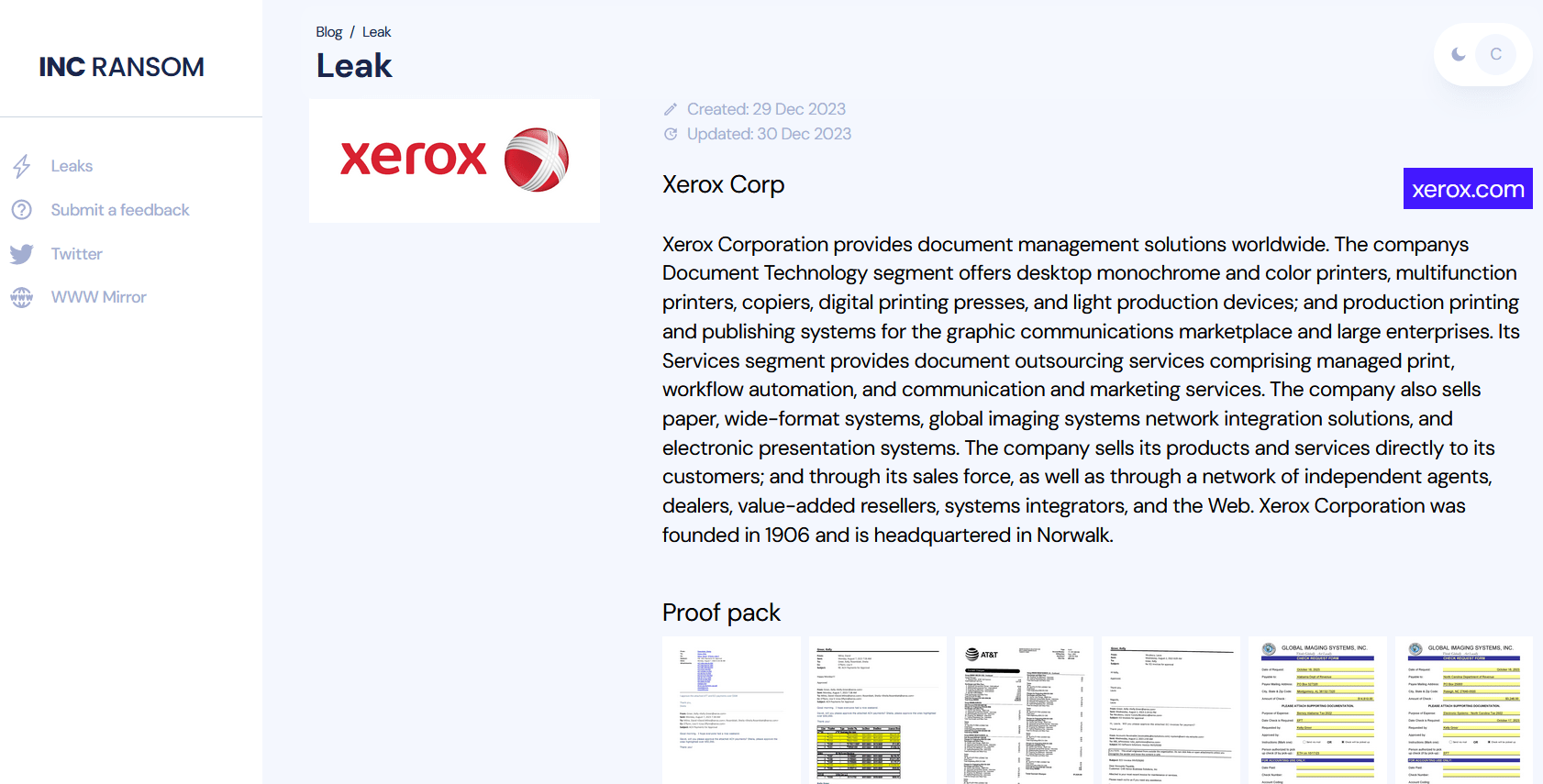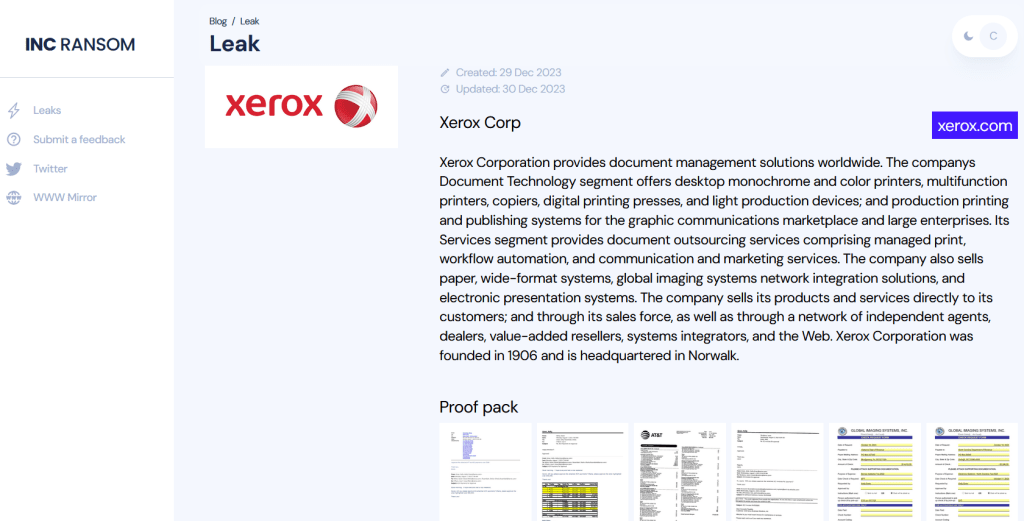INC RANSOM ransomware gang claims to have breached Xerox Corp
INC RANSOM ransomware gang claims to have breached Xerox Corp

The INC RANSOM ransomware group claims to have hacked the American multinational corporation Xerox Corp.
Xerox Corp provides document management solutions worldwide. The company’s Document Technology segment offers desktop monochrome and color printers, multifunction printers, copiers, digital printing presses, and light production devices; and production printing and publishing systems for the graphic communications marketplace and large enterprises.
The INC RANSOM ransomware group claims responsibility for hacking the American multinational corporation Xerox Corp and threatens to disclose the alleged stolen data.
The INC RANSOM group added Xerox to the list of victims on its Tor leak site.
The ransomware group published the images of eight documents, including emails and an invoice, as proof of the hack.
At this time it’s unclear which is the volume of data allegedly stolen from the company.
The INC RANSOM has been active since 2023, it claimed responsibility for the breach of more than 40 organizations to date.
Follow me on Twitter: @securityaffairs and Facebook and Mastodon
(SecurityAffairs – hacking, data breach)




